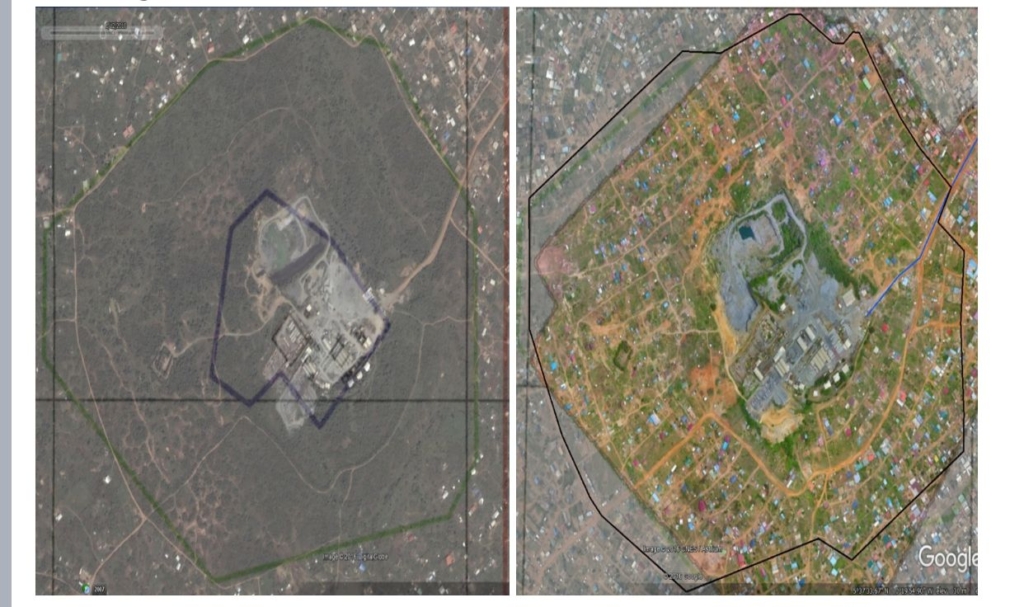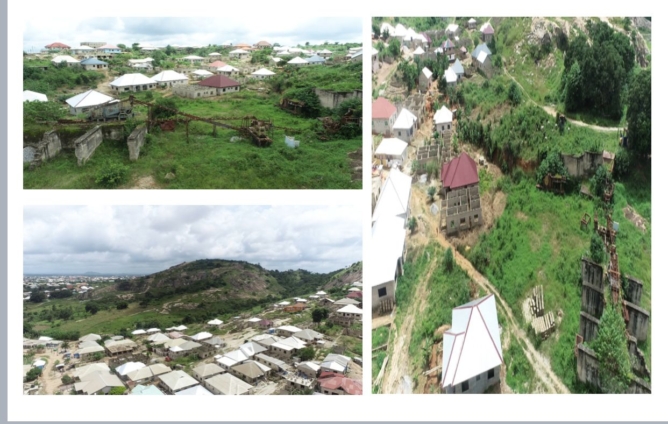Over the 36 years that the legendary Bob Marley lived, he blessed the world with inspirational and powerful songs, plus quotes and statements of profound and timeless significance. One such quote from his song "Rat Race" is, “In the abundance of water, the fool is thirsty.”
This quote, from the song released in 1978, has remained relevant due to its depth, which lends itself to various interpretations of paradoxical situations where people, countries, and organizations struggle despite having ample resources and opportunities.
One paradoxical situation where this popular quote fits perfectly is Ghana’s unique and unfortunate state of affairs. In a country abundant with rules and regulations; lawlessness and impunity often prevail, with individuals and institutions frequently escaping punishment for breaking the law.
A sector that has suffered from this well-documented canker is the quarry sector which continues to suffer various forms of illegal actions with no decisive action being taken by successive governments. In this sector lies an agelong problem which despite countless number of promises, commitment and supposed stakeholder engagements by successive governments has seen no tangible solution.
Instead, the problem continues to spiral out of control with quarry companies and the country having to suffer significant socio-economic losses for the illegal actions of some Ghanaians.
Encroachment is the name of the problem and it is to the quarry sector what illegal mining (galamsey) is to the mining sector. It is a multifaceted challenge, the impact of which extends beyond just the financial loss to the licensed quarry companies. Beyond the companies losing significant funds, the government’s revenue generations are impacted which directly affects infrastructure development, among other things.

The ruinous impact of illegal actions in the quarry sector on the revenue generation capabilities of the country is aptly contextualized by the Chief Executive Officer of the Minerals Income Investment Fund, Edward Nana Yaw Koranteng who in 2022 disclosed the government of Ghana lost over GH¢50m in royalties due to various irregularities in the quarry sector.
Chief among the reasons he cited for this unfortunate development is the issue of encroachment which he says deprives the quarry companies of massive revenue.
The situation was also highlighted in a Daily Graphic report in April 2022 which warned that Ghana risked importing stones and other quarry products in the next 10 years if nothing was done to halt encroachment activities on quarry concessions.
The report further indicated that although the quarry sector had the potential to rake in GH¢100 million in royalties to the state annually, only GH¢3.5 million was recorded.
In July 2023, the Executive Chairman of the Commercial Quarry Operators Association, Dr Ebenezer Mireku made a presentation to the Ministry of Lands and Natural Resources during which he highlighted the huge impact of encroachment on the finances of quarry companies and by extension to the country.
Using figures from just three quarry companies in Ablekuma, Nsawam and Buduburam, he came to the conclusion that companies in total suffered over GH¢15.8 billion in revenue losses due to encroachment on their sites.
While these figures highlight the significances losses to the companies, it also sheds light on huge amount of revenue being denied government as the state enjoys royalties and taxes from these companies.
Again, through the Quarry Development Fund, quarry companies contribute directly to the infrastructure and socio-economic development of their areas by undertaking various CSR projects. While these project may not reach expected levels and not spread countrywide, the Ghana Quarry Association has continued efforts to rein in its members to undertake projects but how can they execute these tasks when their investments and efforts continue to be held back illegal activities. The ability of the mining companies to embark on these projects are affected by the activities of encroachers.

Beyond the impact of the illegal invasion of quarry sites on the companies and government revenue is the threat to life and inconvenience and lost of properties through demolitions and other forms of crackdown measures. Quarry sites have always warned against human settlement and other form of establishment at their buffer zones but these unfortunate situation continue to rise because of factors which will explored in the latter parts of this piece.
<b>Are authorities aware of these challenges?</b>
A cursory search on the internet and various newspaper publications will birth tonnes of stories of Ministers, CEOs and Directors of relevant government agencies giving firm assurances of their resolve to fight the canker and rid the sector of this perennial challenge of encroachment.
In 2016, under the erstwhile Mahama/NDC government, then Minister of Lands and Natural Resources, Nii Osah Mills lamented the situation, expressing the urgent need for government and all stakeholders to address the situation.
His quote, captured in a Daily Graphic report of visit he made to Ablekuma in the Ga West District in 2016 states that “The quarry site has virtually been invaded – buildings are everywhere as close as 20 meters, while others are springing up quickly. This is a real danger and we will work all the relevant agencies to address this situation”.
Fast forward to 2022 and a new government and there exist a Daily Graphic report about the situation with the current Minister of Lands and Natural Resources, Samuel Abu Jinapor was quoted as saying: “My position on this issue is that whatever steps we will take to enforce the regulations, we will do. We will take the enforcement drive to the doorstep of the encroachers. We will activate the enforcement as soon as yesterday. One of my Deputy Ministers is chairing a committee on this enforcement issue and I am not sure that I will serve notice to encroachers on when security persons will operate in their enclave."
The Deputy Minister whom he referred to, a year later, embarked on a tour to some quarry companies and made a promise not different from what his substantive Minister had made barely twelve months before.
Quarry companies also reneged in their campaign to drive the attention of authorities to the severity of the situation that was crippling their operations and making them suffer those huge losses.
<b>Why the situation exists</b>
One of the core reasons at the heart of this unending canker is the sheer dishonesty and greed of some landowners. Some landowners who are aware of the need to protect the integrity of quarry sites would still go ahead to sell the lands and make profit from them.
This sheer greed which is mostly added by the laxity in the enforcement of the rules, in the long-term cost the quarry companies huge amounts of monies.
In the face of constitutional provisions and acts, repeated promises and consistent campaigns by those affected by the encroachment, the phenomenon continues to fester primarily due to one reason, ‘talk, talk and no action’.
The inability of successive administrations to follow through with their public promises with actions has led to the situation we find ourselves in and it does appear that there is no end in sight.
Beyond that is the failure of public institutions to simply enforce the rules and implement them as they are. Chief culprits here are the various Metropolitan, Municipal and District Assemblies (MMDAs) sometimes provide building permits and other documents that legitimize the actions of the encroachers.
While the politicians have a bit of not following through with their promises, as taking actions such as demolition of structures may have electoral consequences, some institutions of state either collude with the encroachers or sit unconcerned as the encroachers go about their activities with impunity.
Another issue that seems to encourage the actions of the encroachers is the delay in court proceedings on matters relative to the encroachment of quarry sites by persons or organizations.
There have been many situations where some quarry companies have either had to give up their concessions or resort to other forms of settlements due to delays in the judicial proceedings after dragging their encroachers to court.
<b>How can the problem be solved</b>
ENFORCEMENT!, ENFORCEMENT!! ENFORCEMENT!!!
In his interview with the Daily Graphic, the Minister for Lands and Natural Resources cited one of the many constitutional or legal instruments that protect quarry operators and their concessions.
The minister stressed that the fight to protect quarry concessions would hinge on the enforcement of Regulation 176 of the Minerals and Mining Regulations, 2012 (L.I. 2177), which states that a manager of a quarry site shall ensure that for any explosion, there is a 500-metre minimum safety distance between a blast and a person near the blast site.
Mr Jinapor said to the extent that Regulation 176 of L.I. 2177 proscribed human settlements within the range of at least 500 metres close to the quarry site, every effort would be made to enforce the law.
Other legislations that need strict, dogged enforcement in tackling the canker include;
- Act 703 Art. 72-75 (Surface Rights)
- LI 2175 Reg. 13-15 (Compensation)
- LI 2177 Reg. 176 (Exclusion Zones)
- LI 2177 Third Schedule (Storage of Explosives)
So, the regulations exist, all they need now is implementation from the Ministry, Minerals
Commission as well as the MMDAs in which these quarry companies operate. These legislations outline the punitive measures needed to be taken to combat encroachment and must therefore be fully implemented.
Owing to the huge losses in revenue, the government must also make it a policy to protect the sanctity of the concession of quarry companies. The Government must crack the whip on them as their actions affect the country’s economic performance.
Expeditious hearing of quarry encroachment cases by the court will go a long way to help deal with the problem.
An engagement between the Chief Justice and leadership of the Commercial Quarry Operators Association on the situation will pretty surely facilitate the prioritised hearing of encroachment cases at the courts.
Latest Stories
-
CHAN 2024Q: Ghana’s Black Galaxies held by Nigeria in first-leg tie
15 minutes -
Dr Nduom hopeful defunct GN bank will be restored under Mahama administration
49 minutes -
Bridget Bonnie celebrates NDC Victory, champions hope for women and youth
56 minutes -
Shamima Muslim urges youth to lead Ghana’s renewal at 18Plus4NDC anniversary
2 hours -
Akufo-Addo condemns post-election violence, blames NDC
2 hours -
DAMC, Free Food Company, to distribute 10,000 packs of food to street kids
3 hours -
Kwame Boafo Akuffo: Court ruling on re-collation flawed
4 hours -
Samuel Yaw Adusei: The strategist behind NDC’s electoral security in Ashanti region
4 hours -
I’m confident posterity will judge my performance well – Akufo-Addo
4 hours -
Syria’s minorities seek security as country charts new future
5 hours -
Prof. Nana Aba Appiah Amfo re-appointed as Vice-Chancellor of the University of Ghana
5 hours -
German police probe market attack security and warnings
5 hours -
Grief and anger in Magdeburg after Christmas market attack
5 hours -
Baltasar Coin becomes first Ghanaian meme coin to hit DEX Screener at $100K market cap
6 hours -
EC blames re-collation of disputed results on widespread lawlessness by party supporters
6 hours

